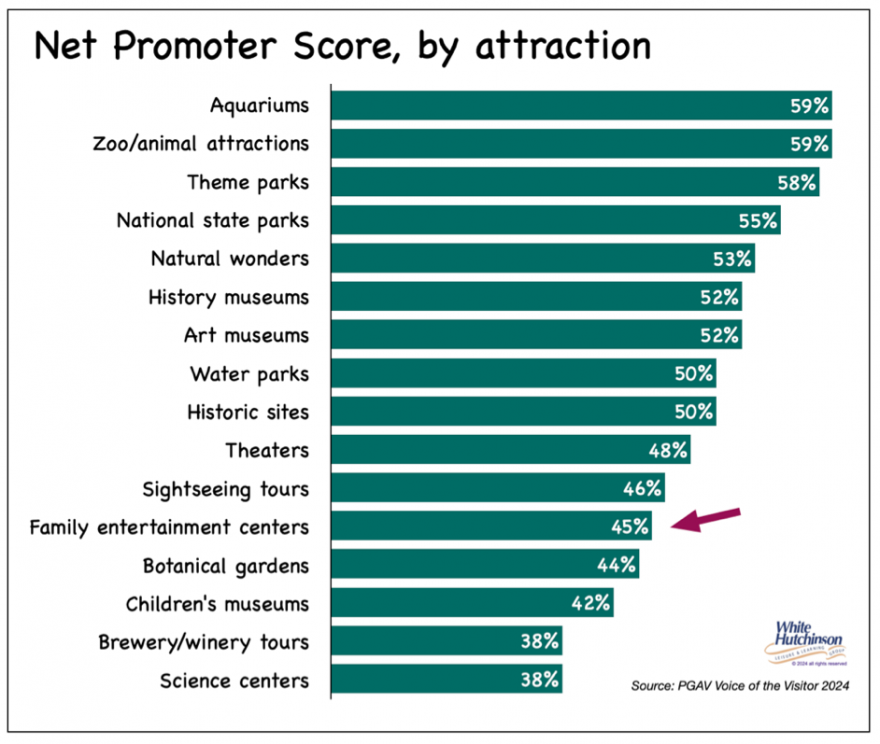
Vol. XXIV, No. 3, May-July 2024
- Editor's corner
- Current projects
- Motivations that influence people's choice of where to visit
- Construction cost barrier for new centers
- How and why consumer drinking habits have changed since the pandemic
- Births continue their decline
- What's driving young adults' food choices
- No, the family market is not the largest target market
- Attraction Net Promoter Scores
Attraction Net Promoter Scores
The Net Promoter Score (NPS) is a market research metric used to gauge customer loyalty and satisfaction. It is based on asking a single survey question: "How likely are you to recommend [our product or company] to a friend or colleague?" Respondents answer on a scale from 0 to 10, and based on their responses, they are categorized into three groups:
- Promoters (scores of 9-10): Loyal and enthusiastic customers who are likely to continue buying and refer others.
- Passives (scores of 7-8): These customers are satisfied but not enthusiastic enough to promote the product or service.
- Detractors (scores of 0-6): Unhappy customers may discourage others from buying and can damage the brand through negative word-of-mouth.
The NPS is calculated by subtracting the percentage of detractors from the percentage of promoters. The score can range from -100 (if every customer is a detractor) to +100 (if every customer is a promoter).
Studies have shown that companies with higher NPS scores tend to grow at a faster rate than their competitors. In the location-based entertainment (LBE) industry, a high NPS can correlate with increased visitor numbers, revenue, and positive reviews.
In their Voice of the Visitor 2024 report, PGAV Destination examined the NPS scores for sixteen different types of attractions. Family entertainment centers (FECs) only came in twelfth with a score of 45 compared to 59 for aquariums, zoos, and animal attractions and 59 for theme parks.

This is not good news for FECs that need to compete with all other types of out-of-home attractions for not only new customers but also repeat ones.
Subscribe to monthly Leisure eNewsletter
Vol. XXIV, No. 3, May-July 2024
- Editor's corner
- Current projects
- Motivations that influence people's choice of where to visit
- Construction cost barrier for new centers
- How and why consumer drinking habits have changed since the pandemic
- Births continue their decline
- What's driving young adults' food choices
- No, the family market is not the largest target market
- Attraction Net Promoter Scores


